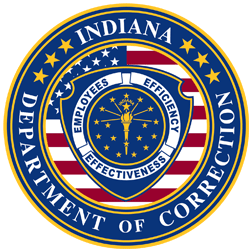The Mental Health Division offers a continuum of clinical mental health services provided by our contracted mental health services providers that include intake, routine interventions, crisis management, addiction recovery services, and special needs services to all incarcerated persons. the incarcerated person with identified mental health needs are seen routinely, and upon request. Incarcerated persons may request mental health services at any time at no charge. Services are provided in the least restrictive setting in which the patient's mental health symptoms may be managed. Our mission is to provide all incarcerated persons with mental health needs access to comprehensive mental health services.
Intake services include mental health screening, suicide prevention screening, appraisal, and evaluation to determine mental health needs and plan for treatment. Each incarcerated person meets with a mental health clinician and participates in a structured appraisal interview that includes information about current and past mental health treatment, substance use and treatment, educational history, and other relevant information that allows the clinician to decide about the patient’s need for referral or further mental health evaluation.
Routine services are available at general population facilities and, to a limited extent, at work release centers. These interventions include screening, evaluation, treatment planning, individual and group therapies, psychoeducation, and discharge planning. Routine psychiatric interventions include evaluation and medication management. Patients who are placed in restrictive housing receive routine mental health monitoring and review.
Specialized mental health services are available at mental health units located in New Castle Correctional Facility, Pendleton Correctional Facility, and Wabash Valley Correctional Facility (for incarcerated males), and Indiana Women’s Prison (for incarcerated females). These services include evaluation, stabilization, testing, treatment planning, individual and group therapies, behavior modification, and psychoeducation in a highly structured environment. Psychiatric special needs services include evaluation, stabilization, and medication management. Incarcerated persons who may need treatment in a mental health unit are discussed on weekly staffing calls, and placement in a mental health unit occurs within a few days to a few weeks after approval.
All correctional staff receive training related to mental health and suicide prevention. Staff working in mental health units for more than thirty (30) calendar days in a year must attend specialized training for certification as Certified Treatment Specialists that includes information on identifying symptoms and behaviors related to mental illness, de-escalation strategies, and appropriate communication with patients with mental illness. Multidisciplinary teams comprised of treatment, custody, unit team, and administrative staff work collaboratively to balance the need for safety and security, mental health treatment, and re-entry preparedness in areas where patients with serious mental illness reside. Case management staff coordinate release planning with our clinical staff, and Parole Release Liaisons embedded in each of the parole districts around the state work in conjunction with parole staff to ensure that the releasing person with special needs have access to the care and resources that they need in the community.
* For more information about our Mental Health services, visit our FAQ HERE.
